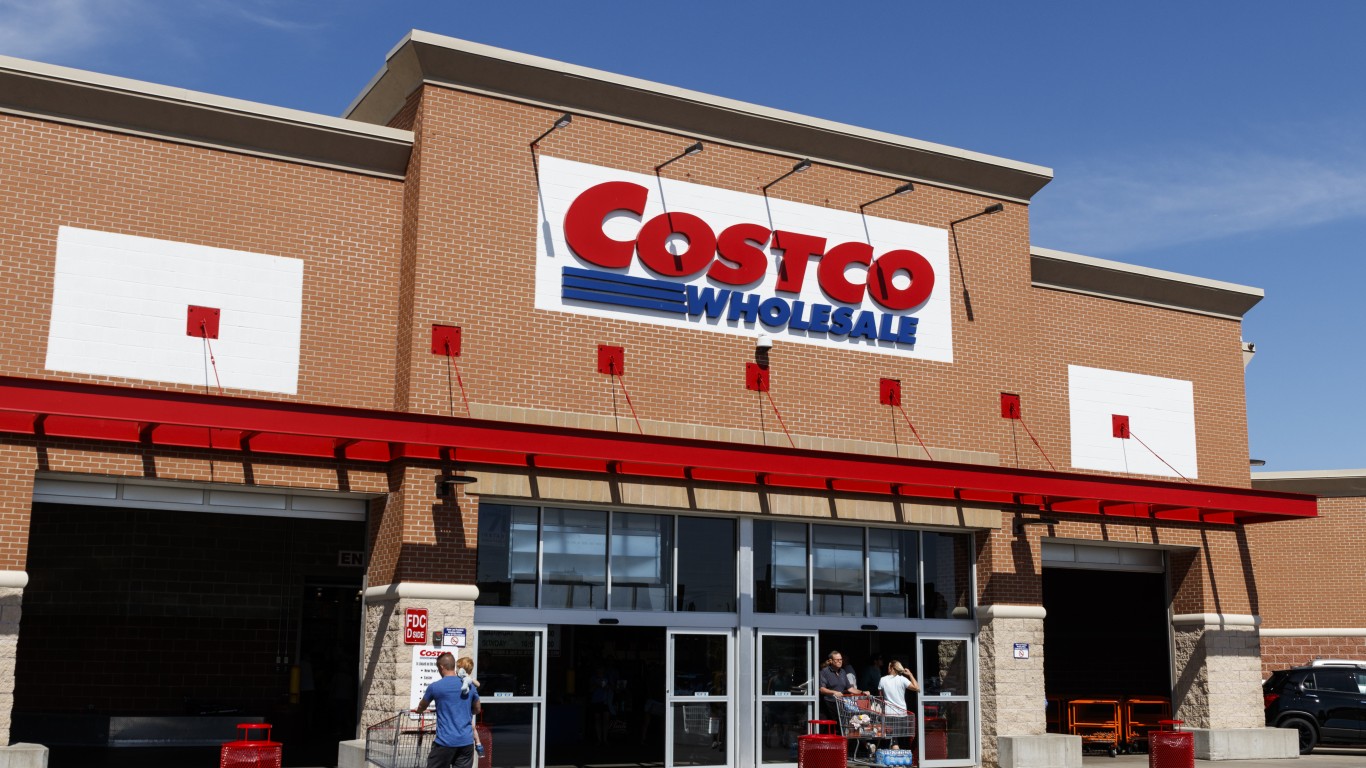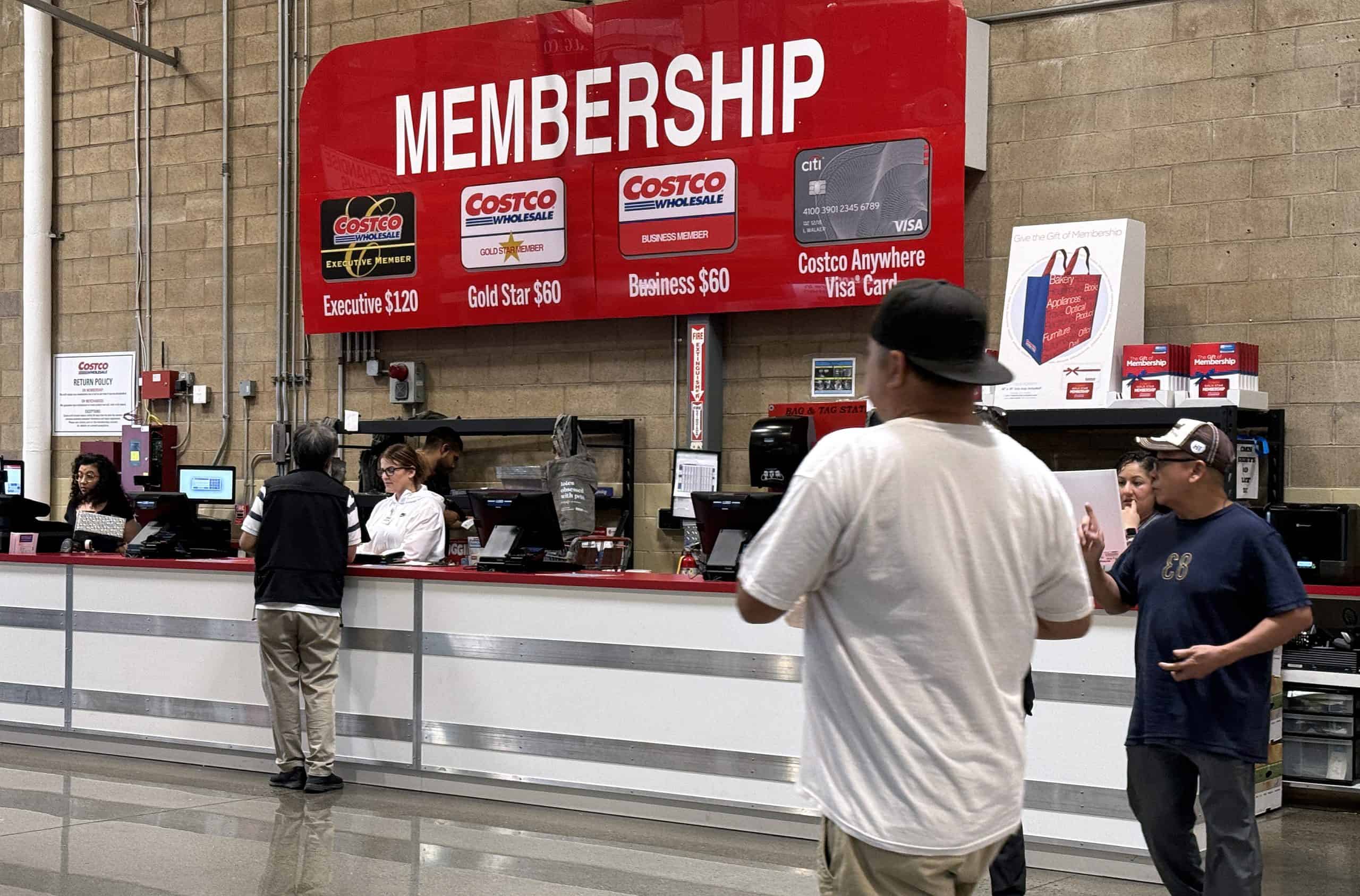Investing
Prediction: Costco (COST) Stock Will Hit $1,400 Under a Trump Presidency

Published:

Costco (NASDAQ:COST) admits tariffs will hurt its business. Donald Trump, as part of his campaign for president, has promised to raise tariffs on imported goods between 10% and 20%, with those coming from China subject to duties as high as 60%.
Because Costco imports a large percentage of the merchandise it sells in its warehouse clubs, a Trump presidency could adversely affect the retailer. Costco says it all depends on the types of goods it is importing, the rates imposed, and when the tariffs go into effect.
Although we can likely expect Trump to begin levying higher duties very early in his administration, Costco may not feel the impact nearly as much as many might expect. The retailer went through a similar round of tariff hikes during Trump’s first term and its stock went on to gain 50% following their imposition. While the tariffs weren’t nearly as high as what is being discussed now, investors should expect Costco to negotiate the turmoil again.
With COST stock trading around $938 per share now, a further 50% gain in value over the next four years is possible.

Data from the Observatory of Economic Complexity indicates Costco is the 12th largest importer of goods in 2024, receiving some 10,600 shipments so far this year, a 25% year-over-year increase. The vast majority of goods the retailer imports come from China. Other major locations were Vietnam, Italy, Norway, and Cambodia.
The cost of tariffs, of course, are not paid by the countries, but by the consumers buying the goods as retailers pass along the higher costs in the form of higher prices. It’s why trade wars are so destructive.
Yet it’s not a certainty that all the tariffs will be imposed. If the threat of them causes the target country to lower its rates on U.S. goods exported to them, they might not ever be imposed. Consumers, though, shouldn’t count on that happening and should figure Costco will raise its prices if and when they go into effect.
Because the warehouse club operates on such low margins, shoppers will still be saving money by buying at Costco. And since it would be a cost that was felt equally across the retail landscape, Costco will remain the low-cost destination of choice for its members.

In its recent fiscal fourth quarter earnings report, the warehouse club showed robust visits to its stores. Adjusted comparable store sales were up 5.9% for the year with e-commerce comps surging over 16% from the year-ago period. Costco also raised its membership fee to $65, a direct cash infusion to the top line from its 76.2 million paid subscribers.
The value proposition of Costco is only enhanced during an inflationary period, which is likely why the retailer performed as well as it did during the last trade war with China. It will undoubtedly fare well again this time around.
Over the past decade COST stock has generated total returns of 721% for investors and it has grown its dividend at a 13% compound annual rate, making it an excellent investment in all kinds of markets.
Expecting the stock to grow 50% over four years, works out to about a 10.7% annual increase in value. That is well within the realm of possibility for Costco, and may just be undervaluing its potential.
The last few years made people forget how much banks and CD’s can pay. Meanwhile, interest rates have spiked and many can afford to pay you much more, but most are keeping yields low and hoping you won’t notice.
But there is good news. To win qualified customers, some accounts are paying almost 10x the national average! That’s an incredible way to keep your money safe and earn more at the same time. Our top pick for high yield savings accounts includes other benefits as well. You can earn up to 3.80% with a Checking & Savings Account today Sign up and get up to $300 with direct deposit. No account fees. FDIC Insured.
Click here to see how much more you could be earning on your savings today. It takes just a few minutes to open an account to make your money work for you.
Thank you for reading! Have some feedback for us?
Contact the 24/7 Wall St. editorial team.